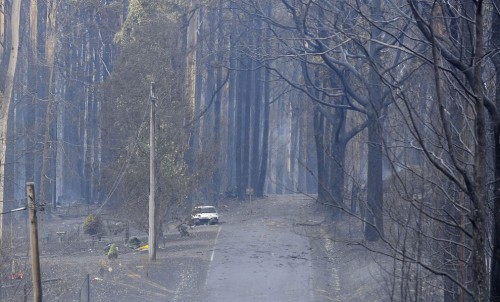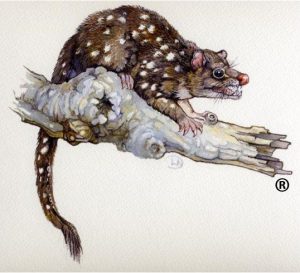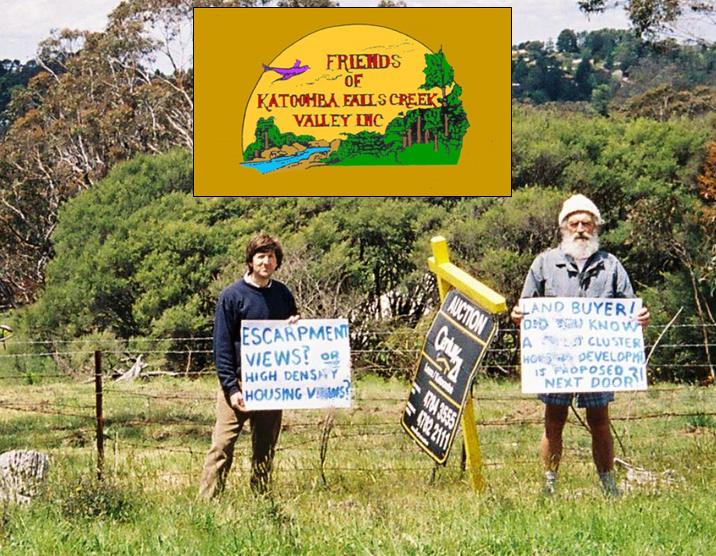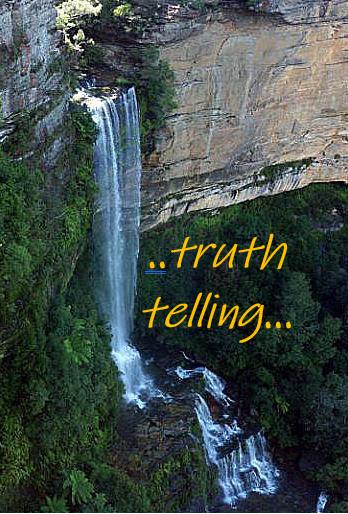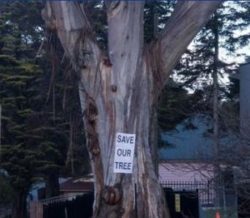Bushfire Reform 02: Fire Event Logging
Saturday, February 19th, 2011.
1. Purpose of Reform Initiative
.
This reform initiative proposes to standardise and make compulsory throughout the NSW Rural Fire Service the following requirements:
- To record the complete direct and indirect costs attributed to fighting and supporting the fighting of each registered bushfire event received and responded to by the NSW Rural Fire Service (RFS) across New South Wales.
- For each registered fire responded to by the RFS, the combined direct and indirect costs incurred by the RFS and all associated organisations are to be incorporated into the Total Fire Cost of each registered fire.
The purpose of capturing the Total Fire Cost of each registered fire is to establish and maintain a database of the Total Fire Cost for every received and registered fire by the NSW Rural Fire Service across New South Wales.
..
2. Recommended Policy
.
The Fire Control Centre of each Rural Fire District in New South Wales must establish and maintain a separate Fire Event Log of each registered fire occurring, either wholly or partially, within its Rural Fire District.
A minimum Australian standard of vital fire information necessary for a Fire Event Log must be established and approved by the NSW Rural Fire Service Commissioner. This standard must be reviewed annually ahead of each peak fire risk season.
A suitable training programme in Fire Event Log Procedures must be established to enable suitable fire personnel to be trained in order to competently maintain a Fire Event Log to the minimum Australian standard.
This policy should be integrated into the RURAL FIRE SERVICE Standard Operating Procedures once a process of consultation with all relevant personnel has been extensively undertaken across the entire breadth of the organisation.
Once approved, a Fire Event Log Policy and Procedures should be gazetted into the Rural Fires Act (NSW), 1997 and considered similarly for each fire authority in each Australian State.
..
3. Recommended Procedures
.
1. The Fire Control Centre of each Rural Fire District across New South Wales must establish a new and separate Fire Event Log upon becoming first aware of any fire within its fire district.
2. A Fire Event Log must be maintained continuously throughout the duration of a fire within a Fire District until such time as the responsible Fire Control Officer (or higher RURAL FIRE SERVICE command) declares the fire extinguished within that district.
3. A Fire Event Log must be recorded using the RURAL FIRE SERVICE central computer system, with appropriate daily data back ups generated at the end of each day.
4. The Fire Control Officer for a given Rural Fire District is ultimate responsibile and accountabile for establishing and maintaining an accurate and thorough Fire Event Log for each fire in its district. A Fire Control Officer may only delegate the task of maintaining a Fire Event Log to a qualified fire fighter holding a current endorsement in Fire Event Log Procedures.
5. The Fire Control Officer of each Rural Fire District must endeavour to capture all information about a fire in a separate Bushfire Event Log for each fire (where possible) including, but not limited to:
5.1. The designated name of the subject fire
5.2. Date & time of the ignition
5.3. Location of the ignition
5.4. Cause of the ignition
5.5. GIS digital map updating of the fire spread, likely path and key data
5.6. Details of the initial reporting of the fire outbreak/detection details
5.7. Lapse time to initial response & details of initial response action
5.8. Location of fire(s) & fire behaviour updates at 15 minute intervals
5.9. Local and forecast weather statistics relevant to the fire
5.10. Interstate agencies seconded
5.11. Daily updates on Total Area Burnt
5.12. Daily updates on any lives Lost
5.13. Daily updates on property lost, including number of dwellings
5.14. Daily updates on area of private property & farmland burnt
5.15. Daily updates on areas of mapped high conservation areas burnt
5.16. Daily updates on the number of fire-fighters involved
5.17. Daily updates on the number of aircraft involved
5.18. Daily synopsis on the fire(s) status
5.19. Executive decisions and actions taken, including incident declaration
5.20. Critical issues
5.21. Key operational threats & risks
5.22. Fire resource needs and shortfalls
5.23. Contact details and correspondence with assigned fire investigation
5.24. Total duration of fire activity once extinguished
5.25. Injury Summary Report
5.26. Resource Usage Summary Report by contribution agency
5.27. Register of Support Agency Involvement
6. When a fire takes the form of combined fires or multiple fire fronts within reasonable proximity in a geographic area, the responsible Fire Control Officer may order that a single Fire Event Log be maintained for the combined fires/multiple fire front.
7. Regular communication must be maintained between the Fire Control Centre and field brigades fighting a fire to facilitate logging fire activity to a minimum standard that allows communications at a minimum interval of 15 minutes.
8. Any communications failures or difficulties between firefighting crews (ground and airborne) and Fire Control, or any problems experienced in maintaining a minimum 15 minute communications frequency, must be immediately reported by the Fire Control Officer, or in the case of a major fire incident, to the Incident Controller.
9. A Fire Event Log is to be deemed the official single register of a fire event, a core operational document and a legal document admissible in a court of law.
10. As an internal document, a Fire Event Log is not automatically available for public access. The RURAL FIRE SERVICE Commissioner may at his/her discretion allow public access to such a document via a Freedom of Information Request from a member of the public.
11. The integrity and security of a Fire Event Log is paramount and is the ultimate responsibility of the Fire Control Officer assigned to a given fire. A digital copy of Fire Event Log must be provided by a Rural Fire District branch to RURAL FIRE SERVICE Headquarters within 7 days of the fire being declared extinguished. A secure and accessible database of Fire Event Logs is to be maintained by both the respective Rural Fire District branch and for all fires across NSW by RURAL FIRE SERVICE Headquarters.
 Koala burnt in Victorian Bushfires of February 2009
© Photo by Rebecca Hallas
[Source :http://www.watoday.com.au/national/physical-scars-will-remain-20090211-83u7.html ]
.
.
Koala burnt in Victorian Bushfires of February 2009
© Photo by Rebecca Hallas
[Source :http://www.watoday.com.au/national/physical-scars-will-remain-20090211-83u7.html ]
.
.
.
4. Justifications for Reform Initiative
1. While it is acknowledged that the author is not a member of the Rural Fire Service and so privy to existing Rural Fire Service policy and procedures for recording bushfire operations, the lack of operational detail provided the Section 44 Incident Controllers Report for the Nov-06 Grose bushfire and the absence of minutes from the subsequent Inter-Agency review on 19-Dec-06, highlight shortcomings in record keeping of fire operations.
2. Perhaps much of the information reported of bushfire events is obtained from personal recollection of events from individual line personnel a considerable time after the event. For instance, the Section 44 Report into the Grose bushfire (14-Nov-06 to 3-Dec-06) is dated 8-Feb-07, two months later. There are obvious problems relying upon recollecting detailed events, the precise time and order of those events, the changing fire behaviour, the decisions made and actions taken and the changing conditions at the time. The absence of a factual minute by minute event log makes it difficult to be accurate and comprehensive in reporting major bushfire incidents. In the event of a major fire, maintaining a Fire Event Log will provide a record the performance of the four ICS functions – control, operations, planning and logistics.
3. It may well be that bushfire agencies in each Australian state have their own methods and protocols for recording fire events. It may also be that different agencies and indeed different regional branches have their own different ways of recording bushfire event data. There is likely no universal consistent standard across Australia of recording bushfire events as they occur. Some records may be better than others. There is a need to have a consistently high standard of record keeping for bushfire events across Australia.
4. Recent coronial inquests in Australia into bushfire deaths (Canberra Bushfire Jan 2003, Eyre Peninsula Fire Jan 2005), highlight the need for fire authorities need to have accurate records of bushfire events so that they are better able to defend their actions in court.
..
5. Benefits of Reform Initiative
.
1. The benefits of establishing and maintaining a Bushfire Event Log is to better enable bushfire management to achieve an accurate and comprehensive record of a fire – the events, decisions and actions and outcomes associated with each fire event. All relevant operational data associated with a fire will be recorded in one convenient document.
2. A Bushfire Event Log will provide a reliable source document for preparing a fire incident report. This will avoid the often difficult task of having to recall events, the order of those events, decisions made along with the fire behaviour at the time, long after a fire sometimes days or weeks later when memories have faded.
3. Recent reports and inquests have highlighted failures in fire-fighting communications, which arguably had a role in contributing to operational problems in controlling the spread, severity and impacts of fires. Compulsorily requiring a Bushfire Event Log will require regular communication between fire-fighters and Fire Control. This requirement will help drive the need to improve the reliability of operational communications during a bushfire event.
4. A Bushfire Event Log will provide a actual live record of the performance of the co-ordination, command and control functions of the ICS, including the operational sequence: Reaction, Reconnaissance, Appreciation, Plan, Issue of Orders and Deployment. This log will be highly useful at a debriefing session following a fire, allowing operational problems to be better identified. This will aid the RURAL FIRE SERVICE to increases its knowledge and understanding of rural fire fighting.
5. A Bushfire Event Log will enable bushfire management to be more transparent in reporting its operations, assisting any possible coronial investigations, for operational evaluation and improvement, analysis and to contribute firefighting practice into bushfire research. By making fire event logging compulsory, regular information must be fed back to central command in order to achieve the minimum reporting standard. This will drive a higher standard in strategic communications.
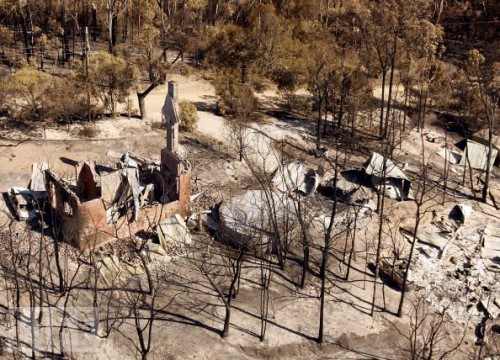 Property incinerated in Kinglake Fire 7th February 2009.
Source: http://www.life.com/image/84754030
Property incinerated in Kinglake Fire 7th February 2009.
Source: http://www.life.com/image/84754030
.
– End of article –
